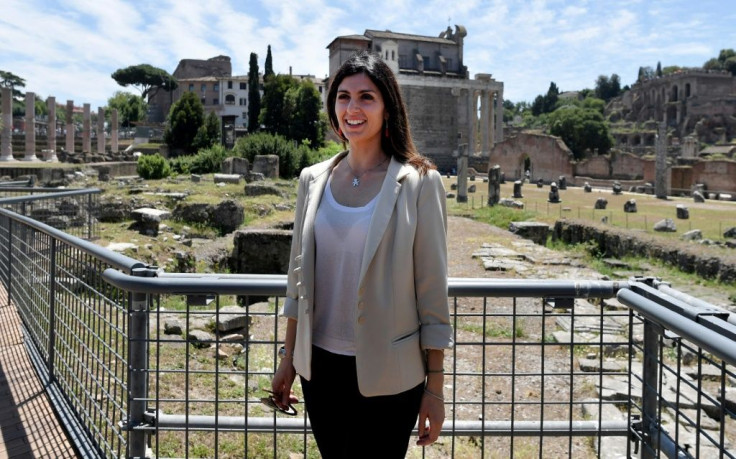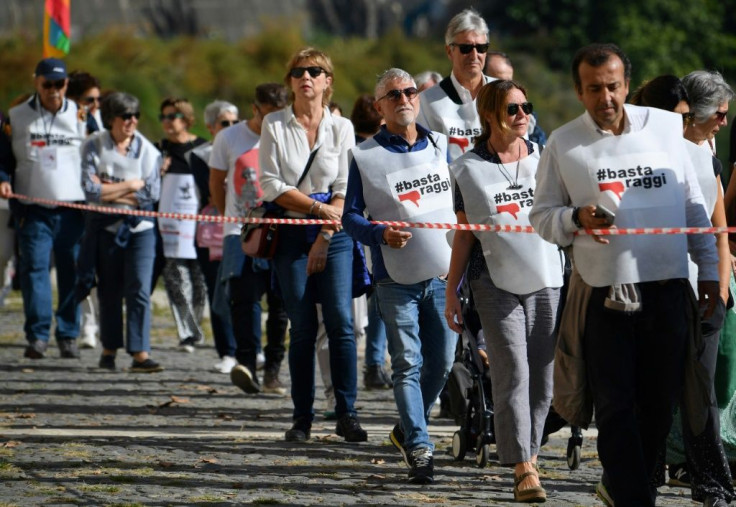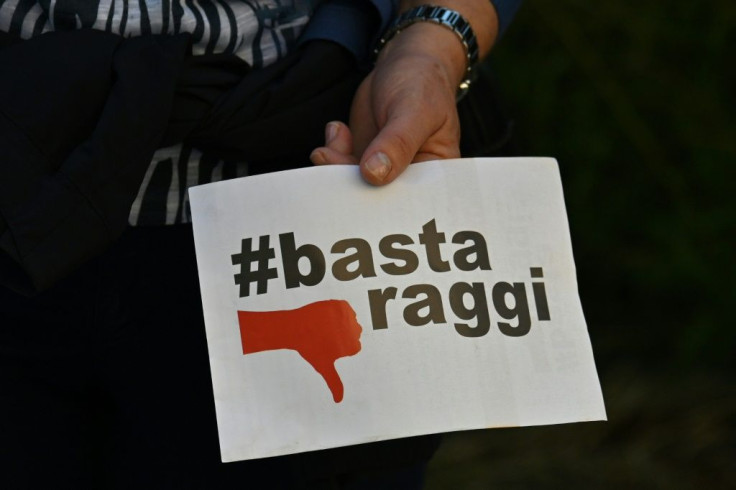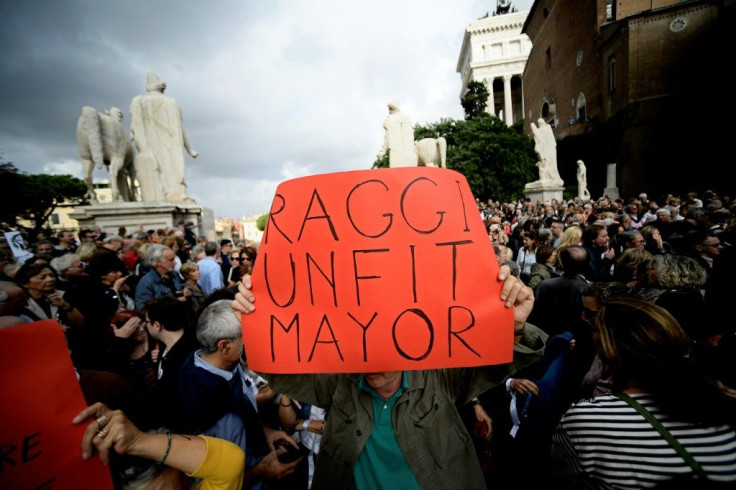As Rome's Mayor Seeks New Term, Romans Decry Decay
Emperor Augustus may have boasted of having transformed Rome from a humble brick settlement into a gleaming capital of marble, but many Romans today accuse the current mayor of leaving it a city of potholes.
As campaigning gets underway for next spring's municipal elections in the Italian capital, Mayor Virginia Raggi faces an uphill battle to convince voters to hand her a second term.
Raggi's government says its priorities include transparency and clamping down on corruption.
But many Romans gripe instead about more fundamental problems -- piling rubbish, unreliable public transport and holes that are the demise of many a high heel or scooter tyre.
Most Romans consider their quality of life today to be worse than five years ago, a survey in August of 2,000 residents by the Piepoli Institute found.

Only one neighbourhood out of the sprawling city's 15 boroughs cited improvement.
"There exist two schools of thought about Virginia Raggi. Those who think that she has done rather well as mayor of Rome. And those who live in Rome," quipped La Repubblica political journalist Stefano Cappellini.
Political experts say that 42-year-old Raggi has struggled to communicate a vision for the city of three million inhabitants, beloved by tourists but viewed as provincial on the international stage.
"The citizens haven't understood what Raggi's plan is," pollster Antonio Noto told AFP.
"She hasn't managed to bring enthusiasm to her city."

Rome's first female mayor swept onto the national stage in 2016 after serving on the city council for three years.
The married lawyer and mother of one was a fresh face, put forward by the maverick Five Star Movement, the anti-establishment party, anxious to show itself capable of bettering a city many deemed ungovernable.
With the city reeling from a vast contract-peddling scandal whose tentacles reached to the heart of city hall, sapping its coffers, Romans elected the relative political neophyte by an unprecedented two-thirds majority.

But the honeymoon was short-lived.
Within months, infighting and resignations within Raggi's team and the arrest of a former close aide on corruption charges had newspapers decrying chaos within the highest ranks.
Her decision to pull the plug on Rome's bid for the 2024 Olympics -- to avoid new debt and "rivers of cement," she said -- enraged those who hoped the games would elevate the capital's status globally, while creating investment and jobs.
Raggi instead tried to tackle more prosaic, yet intractable, problems caused by decades of corruption and mismanagement.
Top of the list was Rome's scandal-ridden garbage collection agency as well as the inefficient transportation network that was 1.3 billion euros in debt at the end of 2018.

Ageing buses were known to frequently start smoking and bursting into flames.
No less troublesome have been falling trees -- due to neglect -- or wild boars that invade the city.
But despite her efforts, Raggi has failed to counter the narrative being hammered home by the opposition that Rome is even worse off now.
Some say she has not been given enough credit where due, such as for speaking out against the mafia and neo-fascists, unlike her predecessors.
For others, it still wasn't enough.
"What she talked about was mundane," said Arianna Montanari, a sociology professor at Rome's Sapienza University.
"'We've fixed up some streets, we've put in some benches.' It's like being a condominium manager."
Supporters point to Raggi's efforts to improve conditions in Rome's long-neglected suburbs.
They say that backing in those districts for a Five Stars-led national referendum on September 20-21 to cut the number of parliamentarians shows that her work has paid off.
Raggi admitted "errors of inexperience" in September but insisted progress had been made.
Hundreds of new buses have been ordered, roads repaved and the city's cash-strapped agencies are on the path to recovery, she stressed.
"There's a relaunch operation under way that unfortunately cannot be done overnight," she told La7 television.
Yet, her poll numbers are currently at their lowest since her election.
And she cannot bank on the support of Lazio regional leader Nicola Zingaretti -- despite him being head of the Democratic Party (PD), which shares power in the national coalition government with Five Stars.
He said in August that the city's current administration had been "Rome's main problem in recent years".
Such is the PD's dislike of Raggi that backroom bargaining has already begun with Five Stars over a joint candidate, according to Italian media.
Meanwhile, Raggi's Facebook page is filled with photos of freshly poured asphalt, green spaces and shiny new buses.
But, warned Noto: "If the city is dirty it's not enough to start cleaning it at the last moment."
"It could be too late."
© Copyright AFP {{Year}}. All rights reserved.





















